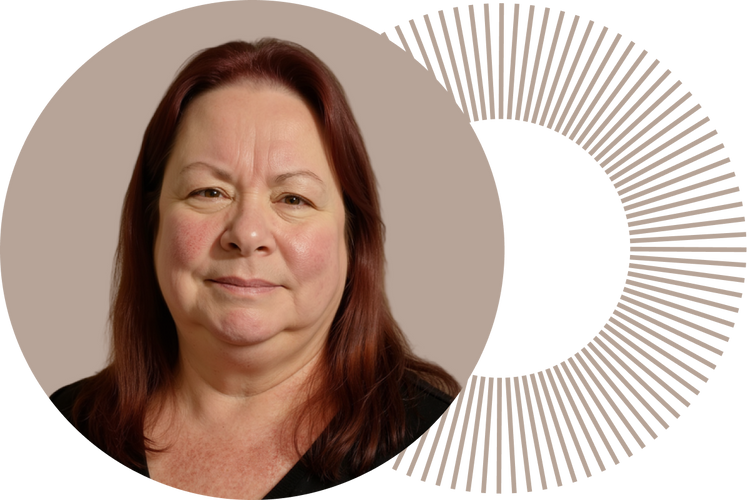Our nationally recognised FNS40222 Certificate IV in Accounting and Bookkeeping is designed to provide you with a strong range of accounting skills to start your own business or register as a Business Activity Statement (BAS) Agent.

Accounting & Finance
Certificate IV in Accounting and Bookkeeping
SKU:FNS40222
Get ready to become a sought-after bookkeeper and accountant with this specialised course. Gain two skills with one certificate and become the highly skilled financial all-rounder that businesses are searching for. Graduate with all the skills and confidence you need to make your mark on the bookkeeping and accounting industries.
-
Flexible payment options
-
Study to fit into your routine
-
Nationally recognised accreditation
-
Start studying as soon as you enrol
-
No exams, ever.
Feel right in your decision
Certificate IV in Accounting and Bookkeeping
Let’s find your next step
We speak with students everyday who aren’t sure if this is the right course or institution for them. Here are some quick links to help you decide.
How would you like to pay for your course?
Speak with an advisor to discuss your payment options. Call 1300 853 033.
Feel right in your decision
Certificate IV in Accounting and Bookkeeping
Get a course guide
Receive your free course guide and a consultation with an Enrolment Consultant.
Feel right in your decision
Certificate IV in Accounting and Bookkeeping
Speak with our team
Have questions about studying or want an insider’s view to see if this course is the right fit for you? Find a time to chat with our team.
Intro to Certificate IV in Accounting and Bookkeeping
Master the art of Bookkeeping and Accounting
Extra Benefits
Course enrolment grants access to two esteemed bookkeeping organisations: Australian Bookkeepers Network (ABN) and Australian Bookkeepers Association (ABA). • ABN: A leading industry association providing a comprehensive online resource centre, expert tools and templates, and a supportive community of bookkeepers. This empowers you to make informed decisions and excel in your practice. • ABA: A government-recognised association enhancing your professional standing. Membership grants you credibility, access to valuable training, and streamlines the BAS Agent registration process. • Institute of Public Accountants (IPA)'s commitment so you can stay industry-current with ongoing learning available (newsletters, conferences, online platform). • You will also receive: Reckon One Cloud Accounting Software 24-month access, community forum, and 3 months free commercial use.


Course breakdown
What you’ll learn in this course
Certificate IV in Accounting and Bookkeeping
FNSACC418
Work effectively in the accounting and bookkeeping industry
BSBTEC301
Design and produce business documents
BSBTEC302
Design and produce spreadsheets
FNSACC321
Process financial transactions and extract interim reports
FNSACC322
Administer subsidiary accounts and ledgers
5/ modules
Envision your routine while studying with Open Colleges
How quickly do you want to finish your course?
- Daily routine
- 07:00 am - 08:00 am
- 08:00 am - 09:00 am
- 09:00 am - 01:00 pm
- 01:00 pm - 02:00 pm
- 02:00 pm - 05:00 pm
- 05:00 pm - 06:30 pm
- 06:30 pm - 07:30 pm
- 07:30 pm - 08:30 pm
- 08:30 pm - 09:30 pm
- 09:30 pm - onwards
- Daily routine
- 07:00 am - 08:00 am
- 08:00 am - 09:00 am
- 09:00 am - 05:00 pm
- 05:00 pm - 06:30 pm
- 06:30 pm - 07:30 pm
- 07:30 pm - 08:00 pm
- 08:00 pm - 09:00 pm
- 09:00 pm - onwards
- Daily routine
- 07:00 am - 08:00 am
- 08:00 am - 09:00 am
- 09:00 am - 05:00 pm
- 05:00 pm - 06:30 pm
- 06:30 pm - 07:30 pm
- 07:30 pm - onwards
Your course may include work placement which will be completed in addition to weekly study blocks.
We'll help you study smarter!
Get in touch for tailored study advice
Our passionate team
Your trainer

Kimberly Kim
Kimberly has over 11 years’ experience in training and assessment in tertiary and vocational education and training institutes. She has also run her own public accounting and tax practice for over two years, after 10 years of working in tax and accounting field.

Rosalie Pellew
Rosalie Pellew has over 30 years' experience in customer engagement; workplace training and assessment; facilitating adult education; leading and coaching customer contact teams; and supporting on-line learning students.

Tanya Galey
Tanya has many years of experience working in the Airline Industry through her role at World Aviation Systems who represent various airlines here in Sydney (Air Tahiti Nui and Hawaiian Airlines to name a few). She has extensive knowledge of Sales, marketing, reservations and the general business operations of an Airline.

Mohammad Rahman
Mohammad has been in the Accounting and Finance field since 2015, taking on various roles like bookkeeper, taxation accountant, financial accountant, and payroll officer. His experience triggered his interest in becoming an Accounting Trainer in vocational education.

Kimberly Kim
Accounting & Finance
Kimberly has over 11 years’ experience in training and assessment in tertiary and vocational education and training institutes. She has also run her own public accounting and tax practice for over two years, after 10 years of working in tax and accounting field.
Kimberly holds a Masters of Business Administration majoring in Professional Accounting and is a Certified Professional Accountant with a passion for teaching.

Rosalie Pellew
Business & Leadership
Rosalie Pellew has over 30 years' experience in customer engagement; workplace training and assessment; facilitating adult education; leading and coaching customer contact teams; and supporting on-line learning students.
Rosalie’s experience spans various industries from retail and telecommunications to food production. Rosalie has been in Vocational Education and Training (VET) sector for over 14 years.
Pursuing her passion for adult education, Rosalie refocused into student services to assist students through their learning journey and beyond to training and assessing. She holds a Certificate IV in Training & Assessment, Diplomas in Teaching, Adult Education, Business Administration, Business and Leadership & Management.
Pursuing her passion for adult education, Rosalie refocused into student services to assist students through their learning journey and beyond to training and assessing. She holds a Certificate IV in Training & Assessment, Diplomas in Teaching, Adult Education, Business Administration, Business and Leadership & Management.

Tanya Galey
Business & Leadership
Tanya has many years of experience working in the Airline Industry through her role at World Aviation Systems who represent various airlines here in Sydney (Air Tahiti Nui and Hawaiian Airlines to name a few). She has extensive knowledge of Sales, marketing, reservations and the general business operations of an Airline.
Through her role at World Aviation she travelled extensively and gained knowledge on various destinations first hand. Tanya has been teaching Certificate III and Diploma of Tourism for the past 10 years to pass on her passion/knowledge for the Tourism Industry to her students. Recently Tanya has received her Certificate IV in Business Administration to supplement her current role as Operations Manager of a financial planning firm. While still consulting with the travel industry she has been in the financial Industry for the past 5 years developing relevant policies/procedures and complying with regulatory practices.
Tanya’s qualifications are Diploma of Tourism, Certificate IV in Tourism, Certificate III in Tourism , Certificate IV in Training & Assessment and Certificate IV in Business Administration.
Tanya’s qualifications are Diploma of Tourism, Certificate IV in Tourism, Certificate III in Tourism , Certificate IV in Training & Assessment and Certificate IV in Business Administration.

Mohammad Rahman
Accounting & Finance
Mohammad has been in the Accounting and Finance field since 2015, taking on various roles like bookkeeper, taxation accountant, financial accountant, and payroll officer. His experience triggered his interest in becoming an Accounting Trainer in vocational education.
Since 2017, he's been training and assessing Accounting in different institutes, including TAFE. He's deeply passionate about teaching and finds joy in sharing his knowledge and experience with learners. With a Bachelor of Business and Commerce in Accounting, Mohammad brings both academic and practical expertise to his role, ensuring students are well-prepared for the industry.
Frequently Asked Questions
Will I learn Myob, Xero and Quik books with this course?
icon
Why do you use Reckon One and not Xero?
icon
What accounting system will I be using for this course?
icon
Full course breakdown
TBD
When can you start? Anytime you like!
There are no start and finish dates, no semesters, so no need to wait. Just enrol and start the path to your new life whenever you’re ready!


